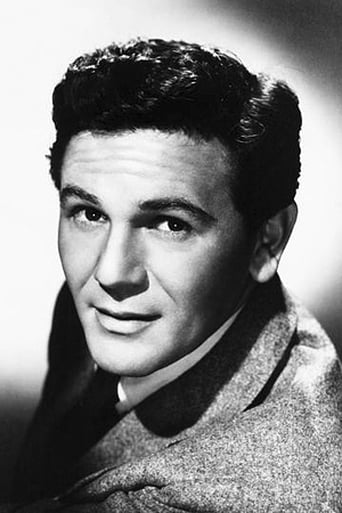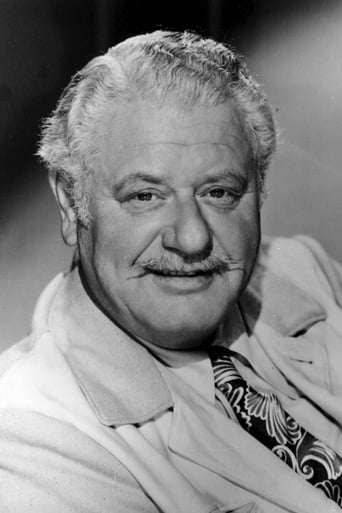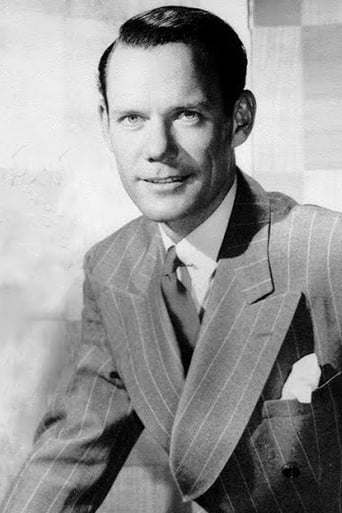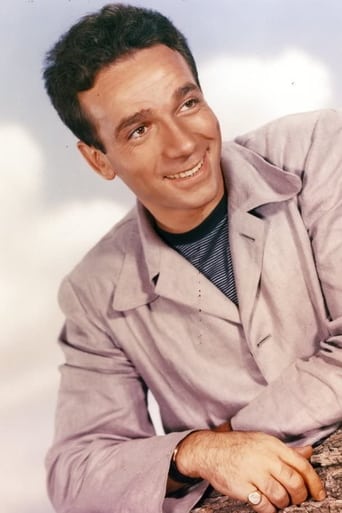Pluskylang
Great Film overall
Claysaba
Excellent, Without a doubt!!
Humaira Grant
It’s not bad or unwatchable but despite the amplitude of the spectacle, the end result is underwhelming.
Fleur
Actress is magnificent and exudes a hypnotic screen presence in this affecting drama.
LT. Duke
Sub movies up to recent times are one way or another seeking to borrow the formula Delmer Davies conceived for this timeless war picture. First, careful attention was paid to technical accuracy. So consistent was the movie to the procedures of WW2 subs, it was shown as part of the instructional program at the Groton Sub School. Second,the picture is punctuated by great action sequences quickly followed by personal profiles of the crew or the officers--but especially the crew. Alan Hale is memorable as Cookie. John Garfield nails it as the more-talk-than-action with the dames "Wolf." Dane Clark hits a homer as a transfer from the surface navy to the special world of the submariner. He gets dubbed "Tin Can" by Torpedo man and 1st Class Petty Officer Mike (Tom Tully) who is the older guy that rookie Robert Hutton ("Slim") gains guts and spiritual sustenance from on his first patrol. Of course Cary Grant is his magnetic self as the skipper of the USS Copperfin. A young Tony Curtis saw this movie and enlisted in the Navy during the war in hopes of becoming a submariner too (he didn't but years later he played one in Operation Petticoat along with his idol Cary Grant). Third, the movie respects the heck out of the sailors for what they do and their loved ones for the allegiance they bear them. Those three factors make the formula that--if adhered to--will invariably produce a submissible addition to the genre. Now, the movie is not without its flaws. The chronology is anti-historical. We are told that it is Christmas 1942 and the guys are about to assist in executing Doolittle's Raid. Problem is the raid went off 8 months earlier in April. The physical environment of the sub is too big, too comfy, and too dry. But these and other nit picks aside, check it out. I watch it 3 or 4 times a year--especially at Christmas time. I got the colorized version a few years before they went off the market. Contrary to the naysayers and purists, I am a fan of colorizing.When you watch it, try to put yourself in the desperate days just after Pearl Harbor when the nation was aching for some scrap of good news. From December '41 through March of '42, it was a succession of gloom, doom, and defeat in the Pacific. These guys are off to give the nation something to cheer about. Go along with that ride. Suspend disbelief. Acquire the climate of opinion that prevailed at that time. If you can do it: you will be transfixed.
dougdoepke
Though this actioner contains genuinely suspenseful moments, its main appeal is now largely historical. Researchers looking for grade-A propaganda films from WWII would do well to view this unabashed Warner Bro's entry. All the clichés of the period are present, from the boastful Romeo (John Garfield) to the lovable wise-cracking cook (Alan Hale Sr.) to the no nonsense captain (Cary Grant) to the fresh-faced kid (Robert Hutton, a disturbingly real presence in an otherwise super-slick cast), replete with the usual rites of passage, etc.. The only missing ingredient in an otherwise formula plot are standard references to Brooklyn. Needless to say, all hands perform heroically, almost bloodlessly, such that submarine warfare appears ultimately no more dangerous than a particularly tense and turbulent ocean cruise where lifelong friendships can be formed. If this sounds cynical, it's because as an adult I view the film far differently than I did as a boy. I now understand that claims from a particularly odious slice of racist dialogue about Japanese being unable to love their women ("They don't even have a word for it") amount to opportunistic and poisonous nonsense that can leave permanent scars. And while such demonization may have motivated wartime audiences, the implications of this and other anti-Asian canards produced an ironical ricochet effect in Vietnam. Moreover, there's a lesson here for those contemporary audiences subjected to similar demonizations. Ironically, the popular deceit of today may turn around and produce the grim reality of tomorrow.
secondtake
Destination Tokyo (1943)While not officially a propaganda film (it's not endorsed or paid for by the government), this is one of many films the studios put out to basically join the effort, putting their shoulder to the wheel. It's not a great film for our times mostly because it's overflowing with lessons, with the propagandistic style of persuading us the Japanese were bad and the U.S. soldiers, with all their wonderful flaws, were out to save us.I say this first because it's a lot of baggage to wade through. The other side to this coin is an adventure war movie where Cary Grant is in charge of a submarine out for a special mission. It's well paced, generally well acted (the cast is filled with lesser actors along with the main three). John Garfield is an average sailor with a big role, and big ego that grates on some of the other sailors. But he tells ribald stories that they can't help listening to. The one older actor is the cook played by character actor Alan Hale, who is appropriately comic.So, what you get is some very talented people explaining the current events, including lots of anti-Japanese chat. The interior shots in the sub are fairly realistic (though from what I read, an actual sub is far more cramped). The outside stuff varies a lot in quality. The shots of the sub underwater are painfully crude models in water tanks. Some of the landscapes are also invented in the studio and you can tell.What carries it at all is a sense of danger and necessity. These men have to succeed to defeat evil. Remember (of course) the audience at the time had a very black and white view of the war, and of the enemies. They were anxious for confirmation that we were capable of such things, and that the enemy (Japan, but also Germany is discussed) is fundamentally wrong—they lack freedoms, the woman are simply alive to bear children, no free press, etc.Why did I watch it? Cary Grant. I'm curious about his range, and his being corralled into this kind of vehicle. I'm guessing he was partly interested in helping the war effort, and partly under contract. And you know what? He's great. He plays it straight, and he's smart, confident, warm, complex. If you like Grant, you might like this movie just for that reason.Another thing to say overall: it gets better as it goes. The set up in the first half is a bit obvious and sometimes stiff or slow. But there is a medical emergency which is pretty great, and then there is the general operation in Tokyo Harbor. It's all dramatic and well done by first-time director Delmar Daves. Yeah, it's got a lot of dated script to wade through, but the best of it is great war stuff best remembered for its context.
skipw171
First, to all who feel the film was wrong to be used as a propaganda tool portraying the Japanese as villains, terrorists or worse, while the USA was (is) without sin, please use ALL of history as a benchmark. At the time the film was made the Japanese military had committed far more atrocities than the sneak attack on Pearl Harbor. They had invaded China unprovoked, indiscriminately bombed population centers of major Chinese cities and raped, tortured and killed a large population of Nanking, the Chinese capital city. This compares with the German march through Eastern Europe at the same time, combined with the Holocaust as well as the unprovoked Italian conquest of Abysinnia (Ethiopia) in the 1930's. When Jimmy Doolittle's bomb group left the Hornet, they didn't fly in formation, nor arrive over Tokyo in formation. They were forced to leave the Hornet approximately 200 miles sooner than originally planned, due to being detected by a Japanese picket patrol, which the task force sunk. Once Doolittle's plane was airborne it headed for Japan with the remainder of the group following behind at approximately 1 to 2 minute intervals. The film shows the entire bomb group in formation after leaving the Hornet and arriving the same way over Tokyo. In spite of this, and being a bit corny by today's standards, a wonderful tribute to many, many men and woman who made incredible sacrifices ensuring victory in WWII.





